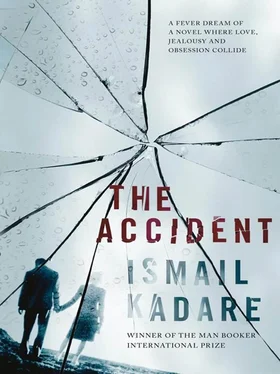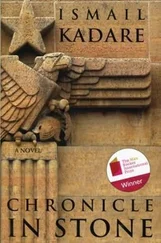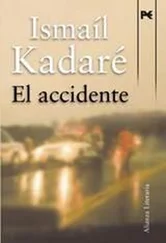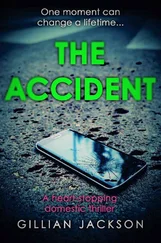Reluctant though they were to admit it, the Albanian intelligence officers suspected that there was an element of truth in what the Serbs said, especially about Besfort Y.’s girlfriend. In an attempt to prove the opposite, the interviewers did their rounds again, visiting the travel agencies, bars, hotel swimming pools and the small apartment where some of the dead woman’s cardboard boxes were still in the cellar.
This did nothing to dispel the confusion in their minds. They began to genuinely suspect that there had been not one but two women whose identities they had mixed up.
Or so they would have liked to believe, but to their despair they became more and more convinced that this young woman of such disturbing loveliness, whom they now knew so well from her letters, the testimonies of others and especially from private photographs, merely concealed within herself a second nature.
The appearance on the scene of the pianist Liza Blumberg, Rovena’s friend, revived the suspicion of murder.
Any involvement of the Serbian secret service had been ruled out at an early stage. Conceivably, Besfort Y. had been eliminated as someone damaging to Yugoslavia, and with him his girlfriend, who happened to be present at the fatal moment. But it was against all logic for this to happen at such a late date. Besfort Y.’s disappearance would have been useful at the proper time but it served no one’s purpose now that the war was over.
The rewriting of events required Besfort Y. not to be killed but discredited. His death would not do this, and would even make it more difficult. It is a known fact that it is easier to defame the living than the dead. Besfort Y. could be no exception, still less his girlfriend.
What was new and surprising in the evidence of Lulu Blumb, as the pianist was known to her circle of friends, was that she linked Rovena’s death not to the Serbian secret service but to her partner. She said that recently there had been a tendency to disguise murders as mishaps, and she firmly believed that Besfort Y. had been determined to get rid of his girlfriend by means of an accident, even if he himself shared her fate.
At this point every interviewer interrupted the pianist and, with unconcealed sarcasm, said that it was hard to accuse one of these two of murdering the other when they had somersaulted into the gully together, unless one imagined that Besfort Y., as they fell, had seized this moment of confusion to commit the crime!
“Wait, don’t laugh too soon,” said Lulu Blumb. “I’m not so crazy as to think that.” Then she put forward her own version.
She was convinced that Besfort Y. had killed his girlfriend. Rovena herself had told her that a few months previously, when they were in Albania and B.Y. had taken her to a shady motel, she had been frightened for her life. Lulu preferred not to go into the reasons why. The intelligence officers were in a better position to discover these. She was a pianist and knew nothing about the dark underside of politics. Besfort Y. had been a complex person. Rovena had once told Lulu about some mysterious phone calls that had come in the small hours. They were about some quarrel with Israel, or over Israel, she couldn’t quite remember. As she said, she had no wish to be involved in arguments of this kind. Even if she had been opposed to the bombing of Yugoslavia, this was not out of firm political conviction but simply a general aversion to war. Meanwhile, the discovery of the nature of the relationship between Rovena and the pianist damaged the latter’s credibility. It was not hard to see, and indeed Lulu herself did not hide it, that the two had been involved in a lengthy affair, which naturally made the pianist jealous of Besfort Y.
This was the reason why, even after Blumberg’s intervention, the investigators paid little heed to her surmises, and especially not to the later episode, the most bewildering of all, in which the pianist first mentioned a large doll torn apart by dogs and then told them not to take any notice of what she said, because she was tired. The interviewers of course came back to the doll, but the pianist said that she had read about it in reports of the deaths, that she was really very tired, and that the only thing she could tell them was that she was sure it had not been Rovena St. but a totally different woman in the cab.
Most reports underlined this last phrase, but the interviewers would have refused to believe her and might not have come back to this point, or even to the suspicion of murder in general, if they had not stumbled upon other evidence – this time from “his” side.
This testimony, apparently the only one of its kind, came from an old college friend of Besfort Y., with whom he had had a conversation on the first floor of the Davidoff Bar in Tirana, one autumn day, a few months before his death.
According to the witness, Besfort had been in a sombre mood. Asked what the matter was, he at first answered vaguely. He had problems. Later he came back of his own accord to his incomplete reply. He had got badly mixed up… with a young woman.
Knowing the sort of man he was, the witness had not asked any more questions. Besfort, unusually for him, volunteered a little more. He thought he had made a mistake. The witness had the impression that Besfort considered any relationship with this woman to be a mistake. To his surprise, he used the word “fear”, though whether he was scared of the relationship or of the woman herself, the witness could not tell.
After a long silence, he repeated that he had gone wrong somewhere. He offered no further explanation, but said that he would try to get out of this mess. He could do it. He became less and less coherent. He believed that when the time came – that is, at the right moment – he would know what to do.
The tone of his conversation brooked no interruption. Facial expression? Manner? Cold. “Oh no, not like a murderer at all. I would just say cold. Pitiless.”
The interviewers went back to the suspicions of Liza Blumb, and even to her almost delirious words about a doll found in the bushes, torn by dogs, but the pianist, erratic as ever, or stricken by remorse at having talked so much, refused to cooperate further.
This did not stop the inquiry proceeding. In fact, now that the pianist was out of the picture, the intelligence officers unexpectedly became all the more keen. Not often had a suspicion of murder led them to examine such minute details to the point that they would forget what they were looking for.
The analysts sifted through all the information, including the new material gathered during the latest research, with a dedication beyond the call of duty.
They returned to the first two statements given by the Dutch couple and the driver of the Euromobil truck. Initially they seemed to agree (the taxi’s open doors, the bodies thrown out), but a careful examination showed this not to be the case. According to the couple, the bodies of the victims were still together as they fell through the air, their arms round each other’s necks, as if trying to hold tight to one another. But the truck driver insisted that the bodies were apart as they fell.
But the evidence of Rovena’s friend Shpresa in Switzerland, who recalled cryptic remarks on the phone, also pointed towards murder.
Yet this explanation was hardly tenable. Other stubborn facts, mysterious scattered phrases and cryptic remarks on the phone, according to the evidence of Rovena’s friend in Switzerland, roused suspicions of another kind.
In a letter written less than a year previously, Rovena had said, “You seem so calm now. I preferred your old irritability, that short temper which brought me such unhappiness, to this terrifying reticence.”
In another note, apparently written quite some time afterwards, she recalled a phone call of the previous evening: “What you said to me last night may have been superficially kind, but was essentially, I don’t know how to put it, frightening, destructive, as cold as outer space.”
Читать дальше












